Chia seeds have gained immense popularity in recent years due to their impressive nutritional profile and numerous health benefits. This article delves into the nutritional content of chia seeds, particularly focusing on their calories, protein, and fiber content. Understanding these elements can help you make informed dietary choices and appreciate the advantages of incorporating chia seeds into your meals.
Chia seeds are small, nutrient-dense seeds from the Salvia hispanica plant, native to Central America. These seeds are celebrated for their versatility, as they can be easily added to a variety of dishes, enhancing both flavor and nutritional value.
One teaspoon of chia seeds contains approximately 20 calories. This low-calorie count makes them an ideal addition to any diet, allowing you to enjoy their health benefits without significantly increasing your caloric intake.
Chia seeds are an excellent source of plant-based protein, offering around 0.7 grams per teaspoon. This protein content is particularly beneficial for those following vegetarian or vegan diets, as it contributes to daily protein requirements.
Rich in dietary fiber, chia seeds provide about 1.9 grams of fiber per teaspoon. This high fiber content is essential for digestive health, promoting regular bowel movements and enhancing feelings of fullness, which can aid in weight management.
In addition to calories, protein, and fiber, chia seeds are packed with omega-3 fatty acids, antioxidants, and vital minerals such as calcium, magnesium, and phosphorus. These nutrients play a crucial role in maintaining overall health and well-being.
The combination of high fiber and protein in chia seeds can help control hunger and reduce overall calorie intake. By incorporating chia seeds into your diet, you can feel fuller for longer, which may assist in managing weight effectively.
Thanks to their substantial fiber content, chia seeds can significantly enhance digestive health. They promote regular bowel movements and can help prevent constipation, making them a beneficial addition to a balanced diet.
Chia seeds are incredibly versatile and can be added to various foods. Here are some popular ways to include them in your meals:
- Add them to smoothies for a nutritional boost.
- Mix them into yogurt or oatmeal.
- Use them in baked goods as an egg substitute.
- Sprinkle them on salads for added crunch.
While chia seeds are generally safe for most people, overconsumption can lead to digestive issues such as bloating or gas. It is advisable to gradually increase your intake and ensure adequate hydration to avoid any discomfort.
You can find chia seeds in health food stores, supermarkets, and online retailers. When purchasing, look for organic and non-GMO options to ensure you are getting a high-quality product that retains its nutritional value.
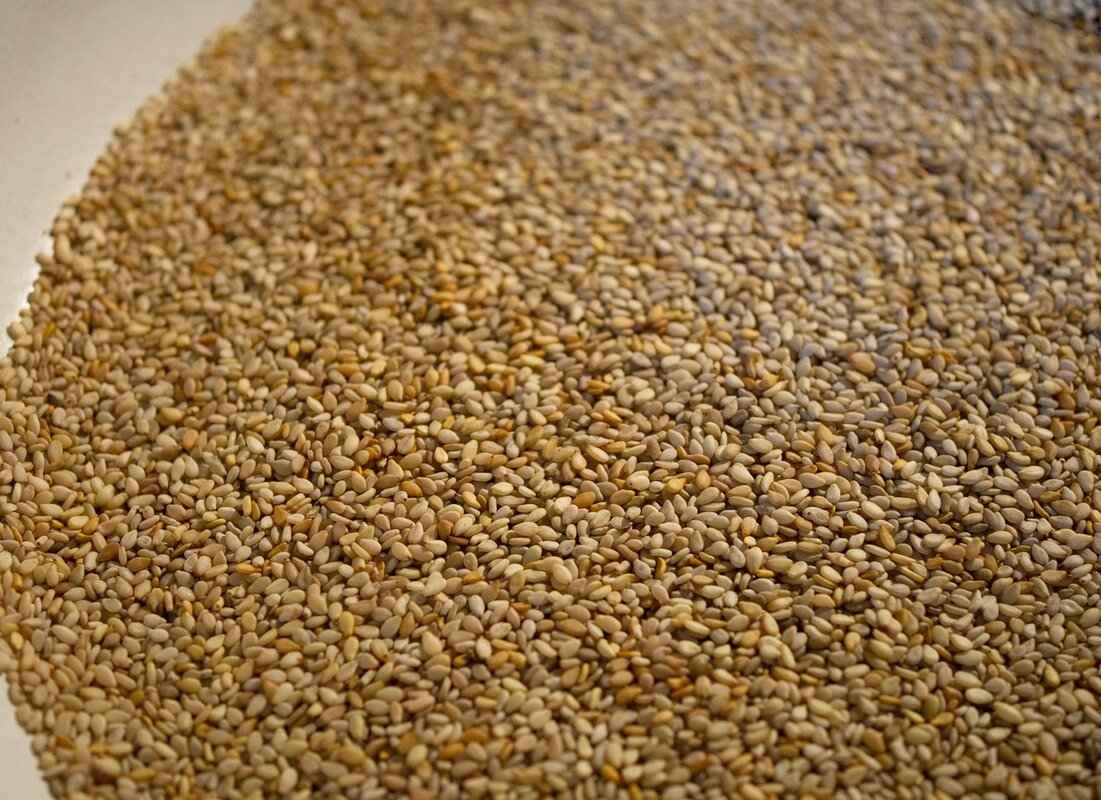
What Are Chia Seeds?
Chia seeds are small, nutrient-dense seeds that originate from the Salvia hispanica plant, which is native to Central America. These tiny seeds can be either black or white and have gained immense popularity in recent years due to their impressive nutritional profile and versatility in culinary applications.
Rich in essential nutrients, chia seeds are often hailed as a superfood. They are packed with omega-3 fatty acids, protein, fiber, and various minerals, making them a valuable addition to any diet. Their unique ability to absorb liquid allows them to swell and form a gel-like consistency, which can enhance the texture of various dishes.
What Makes Chia Seeds Nutritionally Unique?
- High in Fiber: Chia seeds contain approximately 34 grams of fiber per 100 grams, making them an excellent source for those looking to increase their fiber intake.
- Rich in Omega-3s: They are one of the best plant-based sources of alpha-linolenic acid (ALA), an essential fatty acid that supports heart health.
- Plant-Based Protein: With about 17 grams of protein per 100 grams, chia seeds are a great protein source for vegetarians and vegans.
- Loaded with Antioxidants: These seeds are rich in antioxidants, which help combat oxidative stress and inflammation in the body.
- Essential Minerals: Chia seeds are a good source of calcium, magnesium, and phosphorus, all of which are crucial for maintaining bone health.
How Can You Use Chia Seeds in Your Diet?
Incorporating chia seeds into your meals is simple and can enhance both nutrition and flavor. Here are some popular ways to enjoy them:
- Add them to smoothies for a nutrient boost.
- Mix them into yogurt or oatmeal for added texture and fiber.
- Use them as an egg substitute in baking by combining one tablespoon of chia seeds with three tablespoons of water.
- Sprinkle them on salads or incorporate them into homemade energy bars.
Are There Any Health Benefits Associated with Chia Seeds?
The health benefits of chia seeds are numerous. The high fiber content aids in digestion and promotes regular bowel movements, while the protein helps keep you feeling full longer, which can assist with weight management. Additionally, the omega-3 fatty acids are known to support cardiovascular health by reducing inflammation and improving cholesterol levels.
Moreover, chia seeds have a low glycemic index, making them a suitable option for individuals with diabetes as they can help regulate blood sugar levels. Their antioxidant properties also contribute to overall health by protecting the body from free radical damage.
Are There Any Precautions to Consider?
While chia seeds are generally safe for most people, it is essential to consume them in moderation. Overeating chia seeds can lead to digestive discomfort, including bloating or gas. To avoid these issues, it is advisable to gradually increase your intake and ensure adequate hydration, as chia seeds absorb a significant amount of water.
Where Can You Find Quality Chia Seeds?
You can purchase chia seeds at health food stores, supermarkets, and online retailers. When selecting chia seeds, look for organic and non-GMO options to ensure you are getting high-quality seeds that retain their nutritional value.
In summary, chia seeds are a versatile and nutrient-rich addition to any diet. Their numerous health benefits, combined with their ease of incorporation into meals, make them a popular choice for health-conscious individuals.
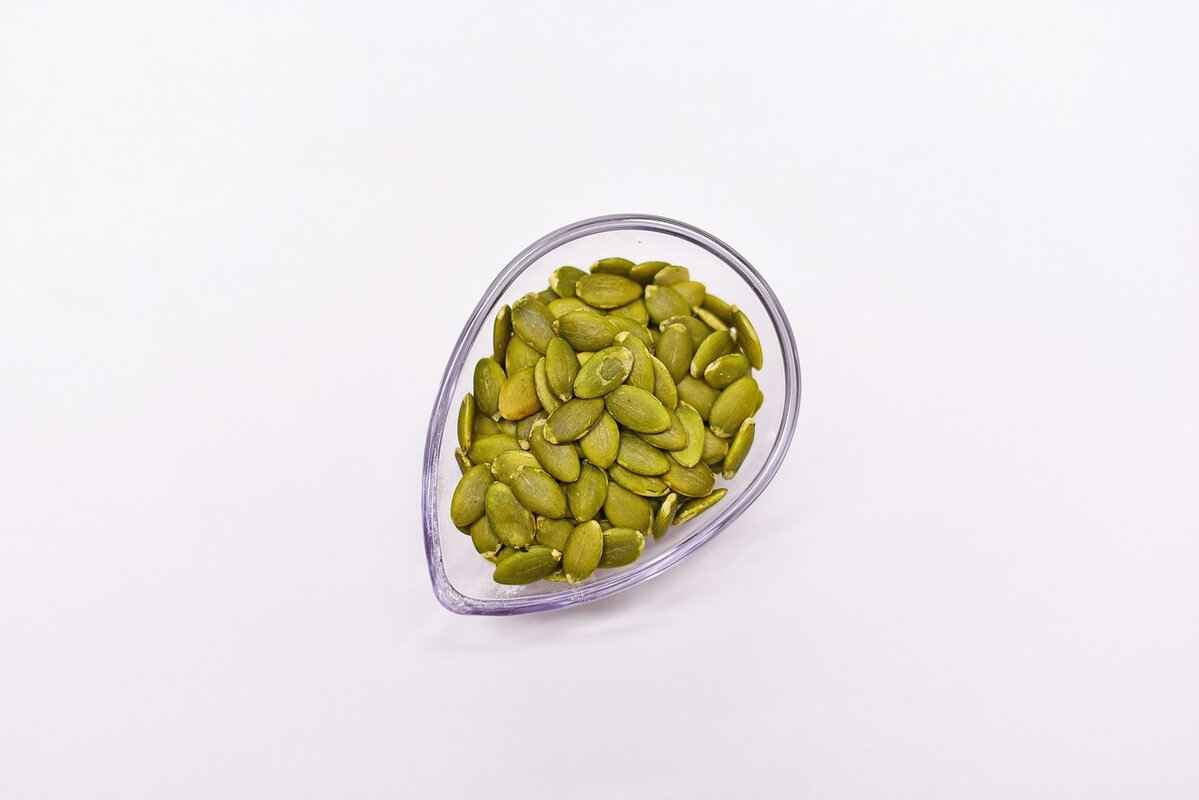
How Many Calories Are in 1 Tsp of Chia Seeds?
Chia seeds have gained popularity in recent years due to their impressive nutritional profile and versatility in culinary uses. One of the most appealing aspects of these tiny seeds is their low calorie content. Understanding the caloric value of chia seeds is crucial for anyone looking to maintain or lose weight while still enjoying nutritious foods.
One teaspoon of chia seeds contains approximately 20 calories. This low-calorie count makes chia seeds an excellent addition to various diets, whether you’re following a weight loss plan or simply looking to enhance your meals without significantly increasing caloric intake. The minimal calorie contribution allows you to incorporate them into smoothies, salads, and baked goods freely.
Incorporating low-calorie foods like chia seeds into your diet can help you achieve your health goals. They provide essential nutrients without packing on the calories. This is especially beneficial for those who are:
- Monitoring their weight
- Seeking to reduce overall caloric intake
- Looking for nutrient-dense additions to their meals
Aside from their low calorie count, chia seeds offer a plethora of health benefits. They are rich in:
- Omega-3 fatty acids, which are essential for heart health
- Dietary fiber, aiding in digestion and promoting a feeling of fullness
- Protein, providing about 0.7 grams per teaspoon, which is valuable for vegetarians and vegans
- Antioxidants, which help combat oxidative stress
Chia seeds can easily be incorporated into a balanced diet. Their ability to absorb liquid makes them a versatile ingredient. Here are some practical ways to include chia seeds:
- Add them to smoothies for a nutrient boost
- Mix them into yogurt or oatmeal
- Use them in baking for added texture and nutrition
The combination of high fiber and protein in chia seeds can help control hunger and reduce overall calorie intake. By promoting a sense of fullness, they may assist in preventing overeating and snacking between meals. This makes chia seeds a smart choice for those aiming to manage their weight effectively.
While chia seeds are generally safe for most people, it’s important to consume them in moderation. Overconsumption can lead to digestive issues such as bloating or gas. To avoid these issues, it’s advisable to:
- Start with a small amount and gradually increase your intake
- Stay hydrated, as chia seeds absorb a significant amount of water
Chia seeds are widely available in health food stores, supermarkets, and online retailers. When purchasing, look for organic and non-GMO options to ensure you are getting high-quality seeds that offer maximum nutritional value.

What Is the Protein Content of Chia Seeds?
Chia seeds are increasingly recognized as a powerful plant-based protein source, particularly appealing to those following vegetarian or vegan diets. Each teaspoon of chia seeds provides approximately 0.7 grams of protein, a modest amount that can contribute significantly to daily protein intake when incorporated into meals and snacks.
While the protein content of chia seeds may seem low compared to animal sources like meat or dairy, they offer unique advantages. The protein in chia seeds is considered a complete protein, meaning it contains all nine essential amino acids that the body cannot produce on its own. This is particularly important for individuals on plant-based diets, as it can be challenging to obtain sufficient quantities of complete proteins.
In addition to protein, chia seeds are also rich in other essential nutrients. They contain a variety of vitamins and minerals, including calcium, magnesium, and phosphorus, which further enhance their nutritional profile. This combination of protein and micronutrients makes chia seeds an excellent choice for those looking to boost their overall health.
Furthermore, chia seeds are incredibly versatile and can be easily integrated into various meals. Here are some practical ways to include chia seeds in your diet:
- Smoothies: Add a tablespoon of chia seeds to your favorite smoothie for an extra protein boost.
- Yogurt: Sprinkle chia seeds on top of yogurt or mix them in for added texture and nutrition.
- Oatmeal: Stir chia seeds into your morning oatmeal for a filling breakfast.
- Baked Goods: Incorporate chia seeds into muffins, bread, or energy bars for a nutritious snack.
One of the notable benefits of chia seeds is their ability to absorb water, expanding in size and forming a gel-like consistency. This property not only enhances their texture but also contributes to a feeling of fullness, which can be beneficial for those managing their weight. The combination of protein and fiber in chia seeds can help control hunger and reduce overall calorie consumption.
For those concerned about the digestibility of chia seeds, it’s worth noting that they are generally well-tolerated. However, it’s best to gradually introduce them into your diet and ensure adequate hydration, as their high fiber content can cause digestive discomfort if consumed in large quantities without sufficient fluid intake.
In summary, chia seeds are a valuable addition to any diet, particularly for those seeking plant-based protein sources. With their complete protein profile, rich nutrient content, and versatility, they can enhance your meals while supporting overall health. Whether you are looking to boost your protein intake or simply add a nutritious element to your diet, chia seeds are an excellent choice.
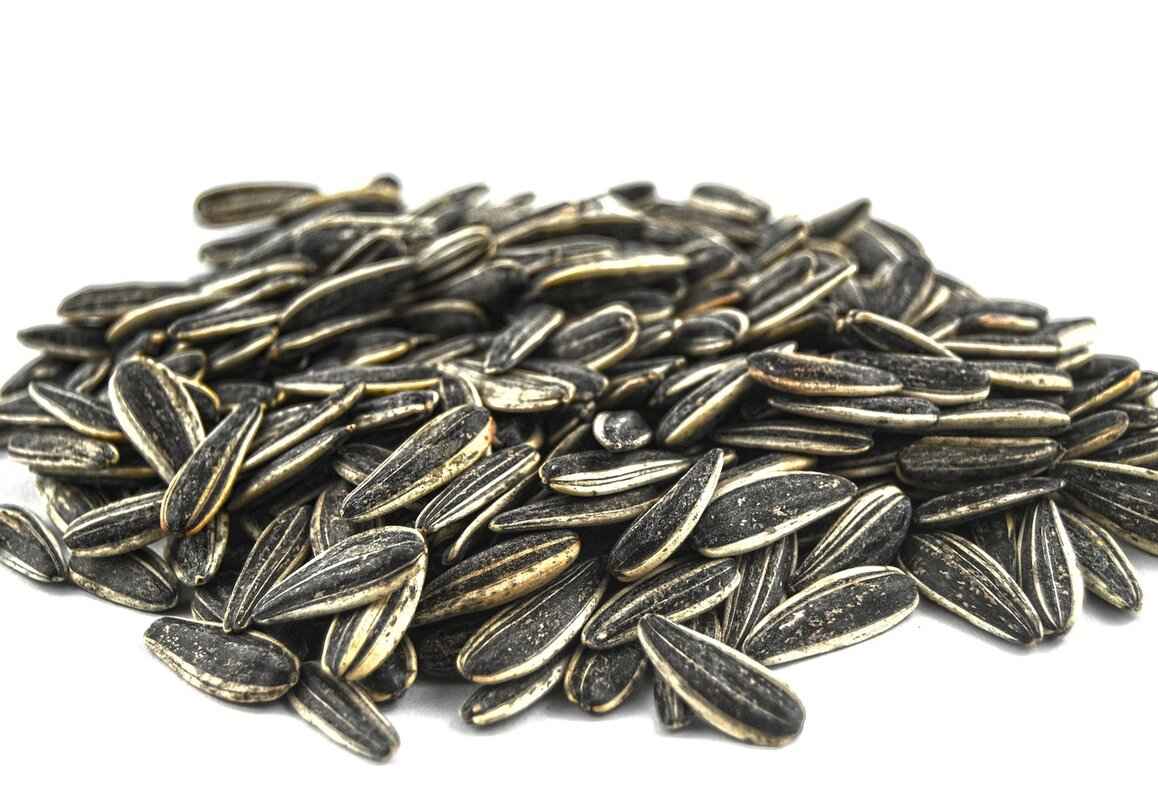
Why Are Chia Seeds High in Fiber?
Chia seeds have gained popularity in recent years due to their impressive nutritional profile, particularly their high fiber content. This tiny powerhouse, derived from the Salvia hispanica plant, offers a remarkable 1.9 grams of fiber per teaspoon. But why exactly are chia seeds considered high in fiber, and how does this benefit your health?
The fiber found in chia seeds is primarily soluble fiber, which absorbs water and forms a gel-like substance in the digestive tract. This unique property allows chia seeds to expand, creating a feeling of fullness and aiding in weight management. When consumed, the soluble fiber in chia seeds can help slow the absorption of sugar in the bloodstream, leading to more stable energy levels.
Fiber plays a crucial role in maintaining a healthy digestive system. The high fiber content in chia seeds promotes regular bowel movements by adding bulk to the stool, which can help prevent constipation. Additionally, the gel-like consistency of soluble fiber can soothe the digestive tract, making it easier for the body to process food.
The ability of chia seeds to absorb liquid and expand in the stomach contributes to a prolonged sensation of fullness. This can be particularly beneficial for individuals looking to manage their weight or reduce snacking between meals. By incorporating chia seeds into your diet, you may find it easier to control your appetite, leading to healthier eating habits.
- Heart Health: A diet high in fiber can help lower cholesterol levels, reducing the risk of heart disease.
- Blood Sugar Control: Fiber can improve insulin sensitivity and help regulate blood sugar levels.
- Gut Health: A fiber-rich diet supports the growth of beneficial gut bacteria, promoting a healthy microbiome.
Adding chia seeds to your meals is simple and versatile. Here are a few ideas:
- Smoothies: Blend chia seeds into your favorite smoothie for an added fiber boost.
- Yogurt: Stir chia seeds into yogurt for a nutritious snack.
- Overnight Oats: Mix chia seeds into your overnight oats for a filling breakfast.
- Baked Goods: Add chia seeds to muffins or bread recipes for extra texture and nutrition.
While chia seeds are generally safe for most people, it’s important to consume them in moderation. Due to their high fiber content, sudden excessive intake can lead to digestive discomfort, including bloating or gas. To avoid these issues, gradually increase your chia seed consumption and ensure you drink plenty of water.
In conclusion, the high fiber content of chia seeds not only supports digestive health but also promotes a feeling of fullness, making them a beneficial addition to any diet. Their versatility allows for easy incorporation into a variety of meals, enhancing both nutrition and flavor. Whether you are looking to improve your digestive health or manage your weight, chia seeds are a simple yet effective solution.

What Other Nutrients Do Chia Seeds Provide?
Chia seeds, often hailed as a superfood, offer a wealth of nutritional benefits that extend far beyond their calorie, protein, and fiber content. In this section, we delve deeper into the nutritional profile of chia seeds, highlighting the significant role they play in enhancing overall health.
Chia seeds are not just a source of calories, protein, and fiber; they are also packed with an array of essential nutrients that contribute to various aspects of health. Here’s a closer look at what makes chia seeds a nutritional powerhouse:
- Omega-3 Fatty Acids: Chia seeds are one of the richest plant sources of omega-3 fatty acids, particularly alpha-linolenic acid (ALA). These healthy fats are crucial for heart health, as they help reduce inflammation and lower blood cholesterol levels.
- Antioxidants: Chia seeds are loaded with antioxidants, which help combat oxidative stress in the body. These compounds protect cells from damage caused by free radicals, potentially reducing the risk of chronic diseases.
- Essential Minerals: Chia seeds are an excellent source of vital minerals such as calcium, magnesium, and phosphorus. Calcium is essential for bone health, magnesium aids in muscle function and energy production, while phosphorus plays a key role in maintaining healthy bones and teeth.
Additionally, chia seeds contain trace minerals like zinc and iron, which are important for immune function and oxygen transport in the blood, respectively. These minerals are especially beneficial for individuals following a plant-based diet, where deficiencies can be more common.
One of the standout features of chia seeds is their ability to absorb liquid and form a gel-like consistency. This unique property not only enhances their texture in recipes but also contributes to their health benefits. When consumed, chia seeds can expand in the stomach, promoting a feeling of fullness and aiding in weight management.
Moreover, the high fiber content in chia seeds also supports digestive health. They help regulate bowel movements and can prevent constipation by adding bulk to the stool. This makes chia seeds an excellent addition to a balanced diet, especially for those looking to improve their digestive function.
Incorporating chia seeds into your diet is simple and versatile. They can be sprinkled on salads, blended into smoothies, or mixed into yogurt and oatmeal. Their mild flavor allows them to blend seamlessly into various dishes, making it easy to enjoy their health benefits.
In conclusion, chia seeds are a nutrient-dense food that provides a multitude of health benefits. Their rich content of omega-3 fatty acids, antioxidants, and essential minerals makes them a valuable addition to any diet. Whether you’re looking to improve your heart health, boost your antioxidant intake, or enhance your overall nutritional profile, chia seeds are an excellent choice.
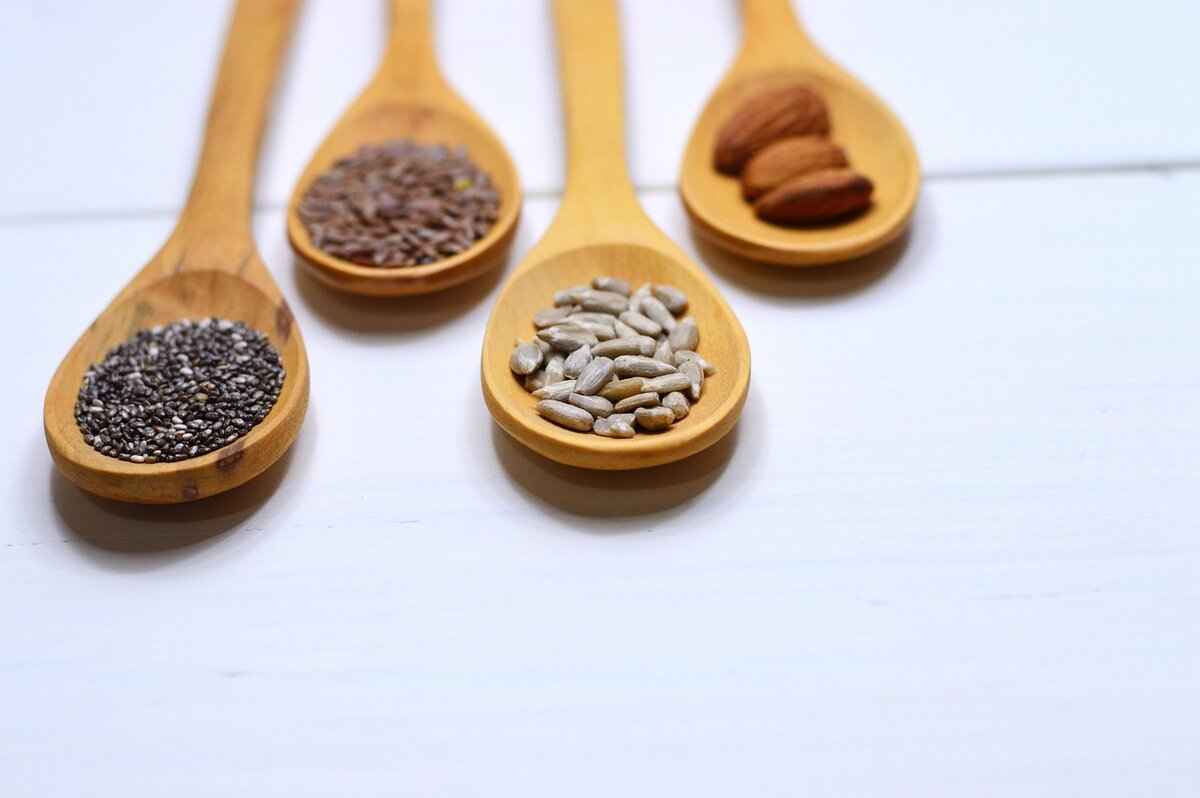
How Do Chia Seeds Aid in Weight Management?
Chia seeds have gained significant attention in the health and wellness community for their remarkable nutritional benefits. When it comes to weight management, the unique combination of high fiber and protein in chia seeds plays a crucial role in helping individuals control their hunger and reduce overall calorie intake. This article explores how these tiny seeds can be a powerful tool in achieving your weight loss goals.
Chia seeds are rich in dietary fiber, with approximately 1.9 grams per teaspoon. This high fiber content is essential for promoting a feeling of fullness, which can help curb hunger pangs and prevent overeating. When chia seeds are consumed, they absorb liquid and expand in the stomach, creating a gel-like substance that contributes to satiety. This process can lead to reduced calorie consumption throughout the day.
In addition to fiber, chia seeds provide about 0.7 grams of protein per teaspoon. Protein is known for its satiating properties, which means it can help you feel fuller for longer periods. Incorporating protein-rich foods into your diet can also support muscle maintenance during weight loss, making chia seeds a valuable addition to a balanced diet aimed at shedding pounds.
Another benefit of chia seeds in weight management is their potential to help regulate blood sugar levels. The fiber content in chia seeds slows down the absorption of sugar into the bloodstream, which can prevent spikes in blood sugar that often lead to cravings and increased hunger. By stabilizing blood sugar levels, chia seeds can help you maintain consistent energy levels and reduce the likelihood of unhealthy snacking.
Incorporating chia seeds into your diet is easy and versatile. Here are some practical ways to enjoy them:
- Add them to smoothies for a nutrient boost.
- Mix them into yogurt or oatmeal for added texture and nutrition.
- Use them as an ingredient in baked goods, such as muffins or energy bars.
- Create chia pudding by soaking seeds in milk or a milk alternative overnight.
By adding chia seeds to your meals, you can enhance their nutritional profile and support your weight management efforts.
While chia seeds are generally safe for most people, it’s important to consume them in moderation. Overconsumption can lead to digestive issues, such as bloating or gas. To avoid these side effects, start with a small amount and gradually increase your intake while ensuring you drink plenty of water.
In addition to aiding in weight management, chia seeds offer numerous long-term health benefits. Their rich profile of omega-3 fatty acids, antioxidants, and essential minerals can contribute to overall wellness. Regular consumption of chia seeds may support heart health, improve digestion, and enhance skin health, making them a valuable addition to any diet.
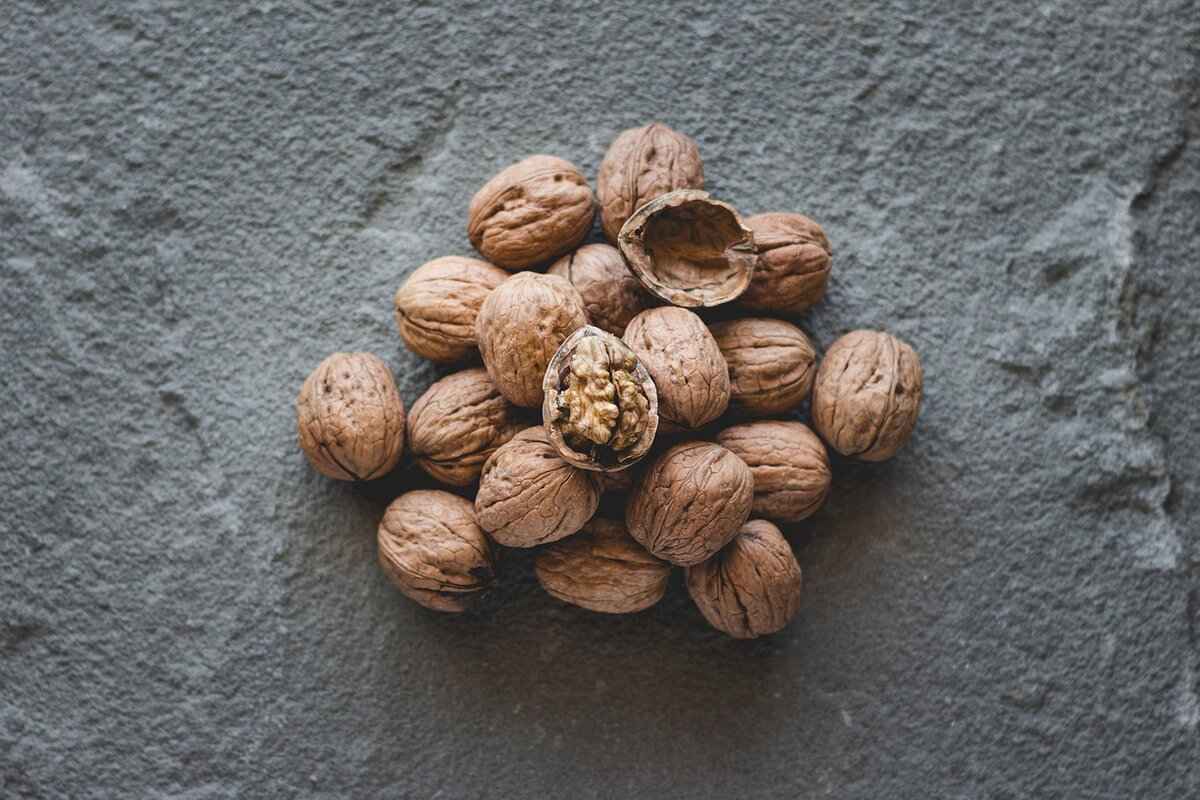
Can Chia Seeds Improve Digestive Health?
Chia seeds have gained significant attention in the health and wellness community, primarily due to their impressive nutritional profile. Among their many benefits, one of the most noteworthy is their ability to enhance digestive health. This article explores how chia seeds contribute to improved digestion and overall gut health.
Chia seeds are exceptionally high in dietary fiber, with approximately 1.9 grams of fiber in just one teaspoon. This fiber content plays a crucial role in promoting regular bowel movements. When chia seeds are consumed, they absorb water and expand, forming a gel-like substance. This gel not only adds bulk to the stool but also helps to prevent constipation by making the stool easier to pass.
Chia seeds contain both soluble and insoluble fiber. Soluble fiber dissolves in water and helps to slow digestion, which can aid in nutrient absorption and promote a feeling of fullness. On the other hand, insoluble fiber adds bulk to the stool and helps food move through the digestive tract more efficiently. This combination makes chia seeds a powerhouse for digestive health.
In addition to promoting regular bowel movements, chia seeds can also support a healthy gut microbiome. The fiber in chia seeds acts as a prebiotic, feeding the beneficial bacteria in the gut. A healthy gut microbiome is essential for overall health, as it can influence everything from digestion to immune function.
Incorporating chia seeds into your diet is simple and versatile. Here are some practical ways to add them:
- Smoothies: Blend chia seeds into your morning smoothie for an added fiber boost.
- Yogurt: Stir chia seeds into yogurt for a nutritious snack or breakfast.
- Overnight Oats: Mix chia seeds into your overnight oats for a filling meal.
- Baked Goods: Add chia seeds to muffins, breads, or pancakes for enhanced nutrition.
While chia seeds are generally safe for most people, it’s important to consume them in moderation. Overeating chia seeds can lead to digestive discomfort, such as bloating or gas. To minimize these effects, gradually increase your intake and ensure you drink plenty of water throughout the day.
In summary, the high fiber content of chia seeds makes them an excellent choice for improving digestive health. By promoting regular bowel movements, preventing constipation, and supporting gut health, chia seeds can be a valuable addition to a balanced diet. Their versatility and ease of incorporation into meals further enhance their appeal as a healthful ingredient.

How to Incorporate Chia Seeds into Your Diet?
Chia seeds have gained immense popularity in recent years, not just for their nutritional benefits but also for their versatility in the kitchen. They can be effortlessly incorporated into a variety of dishes, enhancing both flavor and health benefits. Here are some effective ways to include chia seeds in your daily diet:
- Smoothies: Adding chia seeds to your smoothies is an excellent way to boost their nutritional value. These seeds can absorb up to 10 times their weight in water, creating a gel-like consistency that can enhance the thickness and texture of your drink. Simply add a tablespoon of chia seeds to your favorite smoothie recipe for an extra dose of fiber and omega-3 fatty acids.
- Yogurt: Mix chia seeds into yogurt for a delightful crunch and added nutrition. You can prepare a chia pudding by soaking the seeds in yogurt overnight, allowing them to expand and create a creamy texture. This makes for a perfect breakfast or snack option rich in protein and healthy fats.
- Oatmeal: Stirring chia seeds into oatmeal not only enhances its nutritional profile but also adds a pleasant texture. You can add them before cooking or as a topping. This addition increases the fiber content, promoting digestive health and keeping you fuller for longer.
- Baked Goods: Chia seeds can be used in various baked goods, such as muffins, bread, and pancakes. They can replace eggs in vegan recipes by mixing one tablespoon of chia seeds with three tablespoons of water and letting it sit until it forms a gel. This not only binds the ingredients but also enriches the baked items with additional nutrients.
- Salads: Sprinkle chia seeds on salads for a nutritious crunch. They can be added whole or ground, providing a nutty flavor that complements a variety of dressings and toppings. Their ability to absorb moisture means they can help dressings adhere better to the greens.
- Soups and Stews: Incorporate chia seeds into soups and stews as a thickening agent. They will absorb the liquid and create a more substantial texture, all while adding a wealth of nutrients. This is an easy way to enhance the health benefits of your meals without altering the flavor significantly.
- Energy Bars: If you enjoy making homemade energy bars, chia seeds are a perfect ingredient. They provide a great source of energy and can help bind the ingredients together. Mix them with nuts, dried fruits, and a sweetener of your choice for a nutritious snack.
Incorporating chia seeds into your diet is not only simple but also beneficial for your overall health. Their versatility allows you to experiment with different recipes, ensuring you never get bored. Whether you prefer them in smoothies, baked goods, or salads, chia seeds can easily become a staple in your kitchen.
Remember to start with small amounts, especially if you are new to chia seeds, as they are high in fiber. Staying hydrated is essential when consuming chia seeds, as they absorb water and can expand in your stomach. With a little creativity, you can enjoy the numerous health benefits that these tiny seeds offer.

Are There Any Side Effects of Consuming Chia Seeds?
Chia seeds have gained immense popularity in recent years due to their impressive nutritional profile and health benefits. However, as with any food, it is crucial to be aware of potential side effects associated with their consumption. This article delves into the side effects of chia seeds, particularly focusing on digestive issues that may arise from overconsumption.
While chia seeds are generally safe for most individuals, overconsumption can lead to various digestive issues. Some of the common side effects include:
- Bloating: Many people report experiencing bloating after consuming large quantities of chia seeds. This can occur due to the seeds’ high fiber content, which may lead to gas buildup in the digestive tract.
- Gas: Similar to bloating, excess gas can result from the fermentation of fiber in the gut. For those who are not accustomed to a high-fiber diet, this can be particularly uncomfortable.
- Constipation: Interestingly, while chia seeds can promote regular bowel movements, consuming them without adequate hydration can lead to constipation. The seeds absorb a significant amount of liquid, and without sufficient water, they can harden in the digestive system.
To enjoy the health benefits of chia seeds while minimizing the risk of digestive discomfort, it is essential to follow some practical guidelines:
- Gradual Increase: Start with a small amount of chia seeds, such as one teaspoon per day, and gradually increase your intake. This allows your digestive system to adjust to the added fiber.
- Stay Hydrated: Drink plenty of water throughout the day. Chia seeds can absorb up to 12 times their weight in water, so adequate hydration is crucial to prevent constipation and other digestive issues.
- Soak Before Consumption: Soaking chia seeds in water or other liquids before eating can help them expand and become easier to digest. This method also enhances their nutritional absorption.
While most people can enjoy chia seeds without issues, certain individuals should exercise caution:
- Those with Digestive Disorders: Individuals with conditions like irritable bowel syndrome (IBS) or other gastrointestinal disorders may experience exacerbated symptoms from high-fiber foods like chia seeds.
- Pregnant and Nursing Women: It’s advisable for pregnant or nursing women to consult their healthcare provider before significantly increasing their chia seed intake.
- Individuals on Medications: If you are taking medications that affect digestion or blood sugar levels, consult your doctor before adding chia seeds to your diet, as they can interact with certain medications.
Despite the potential side effects, chia seeds are a powerhouse of nutrition. They are rich in omega-3 fatty acids, protein, and fiber, making them an excellent addition to a balanced diet. Their ability to promote satiety can aid in weight management, while their antioxidant properties contribute to overall health.
In conclusion, while chia seeds offer numerous health benefits, it is essential to consume them mindfully. By gradually increasing your intake and ensuring proper hydration, you can enjoy the advantages of chia seeds while minimizing the risk of digestive discomfort.
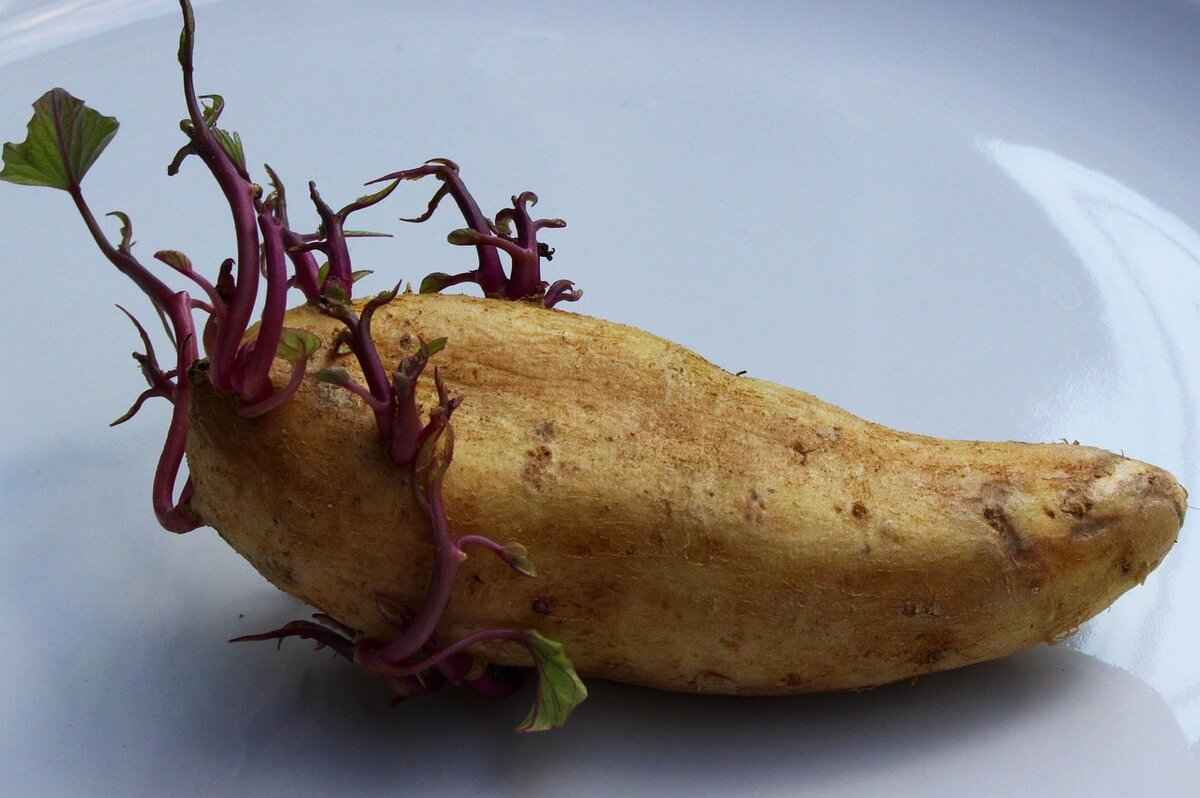
Where to Buy Quality Chia Seeds?
When it comes to incorporating chia seeds into your diet, knowing where to find high-quality options is essential. These tiny seeds are not only nutritious but also versatile, making them a popular choice among health enthusiasts. In this section, we will explore the best places to purchase chia seeds, ensuring you get the most nutritional value from your purchase.
Health food stores are often the first choice for many consumers looking for organic and non-GMO chia seeds. These stores typically carry a variety of brands, allowing you to select based on your preferences and dietary needs. When shopping at a health food store, consider the following:
- Check Labels: Always read the labels to confirm the seeds are certified organic and free from genetically modified organisms.
- Ask Staff: Don’t hesitate to ask store staff for recommendations on the best brands or products available.
- Bulk Options: Many health food stores offer bulk purchasing, which can be more economical and allows you to buy the quantity you need.
Many supermarkets now recognize the demand for health foods and have begun stocking chia seeds in their aisles. When shopping at a supermarket, look for the following:
- Natural Foods Section: Chia seeds are often found in the natural or organic foods section of the store.
- Brand Variety: Supermarkets may carry both local and national brands, giving you options to choose from.
- Sales and Promotions: Keep an eye out for sales or promotions that can help you save on your purchase.
For those who prefer shopping from home, online retailers offer a vast selection of chia seeds. Here are some tips for purchasing chia seeds online:
- Reputable Websites: Choose well-known online retailers or health-focused websites to ensure product quality.
- Customer Reviews: Read customer reviews to gauge the quality and freshness of the seeds.
- Compare Prices: Take advantage of price comparison tools to find the best deals available.
Another excellent option for purchasing chia seeds is your local farmers’ market. Here, you can often find:
- Locally Sourced Products: Supporting local farmers and producers can lead to fresher products.
- Organic Options: Many vendors at farmers’ markets offer organic chia seeds.
- Personal Interaction: You can ask questions directly to the vendors about their farming practices and product quality.
Regardless of where you choose to buy your chia seeds, keep these tips in mind:
- Packaging: Look for seeds in opaque packaging to protect them from light, which can degrade their quality.
- Expiration Date: Always check the expiration date to ensure freshness.
- Storage Conditions: Consider how the seeds have been stored, as improper storage can affect their nutritional value.
In summary, chia seeds can be easily found in various locations, including health food stores, supermarkets, online retailers, and farmers’ markets. By choosing organic and non-GMO options, you can ensure that you are getting the highest quality chia seeds available.
Frequently Asked Questions
- What are chia seeds?
Chia seeds are tiny black or white seeds from the Salvia hispanica plant, renowned for their impressive nutritional profile and versatility in various culinary dishes.
- How many calories are in 1 tsp of chia seeds?
One teaspoon of chia seeds contains about 20 calories, making them a fantastic choice for those looking to maintain a low-calorie diet without sacrificing nutrition.
- What is the protein content of chia seeds?
Each teaspoon of chia seeds provides approximately 0.7 grams of plant-based protein, making them an excellent addition to vegetarian and vegan diets.
- Why are chia seeds considered high in fiber?
Chia seeds are rich in dietary fiber, offering around 1.9 grams per teaspoon, which aids in digestion and helps you feel full longer.
- How can I incorporate chia seeds into my diet?
You can easily add chia seeds to smoothies, yogurt, oatmeal, or baked goods. Their unique ability to absorb liquid makes them a versatile ingredient for various recipes.
- Are there any side effects of consuming chia seeds?
While generally safe, consuming too many chia seeds at once can lead to digestive issues like bloating or gas. It’s best to start with small amounts and increase gradually.
- Where can I buy quality chia seeds?
You can find chia seeds at health food stores, supermarkets, and online retailers. Opt for organic and non-GMO options to ensure you’re getting the best quality.
























